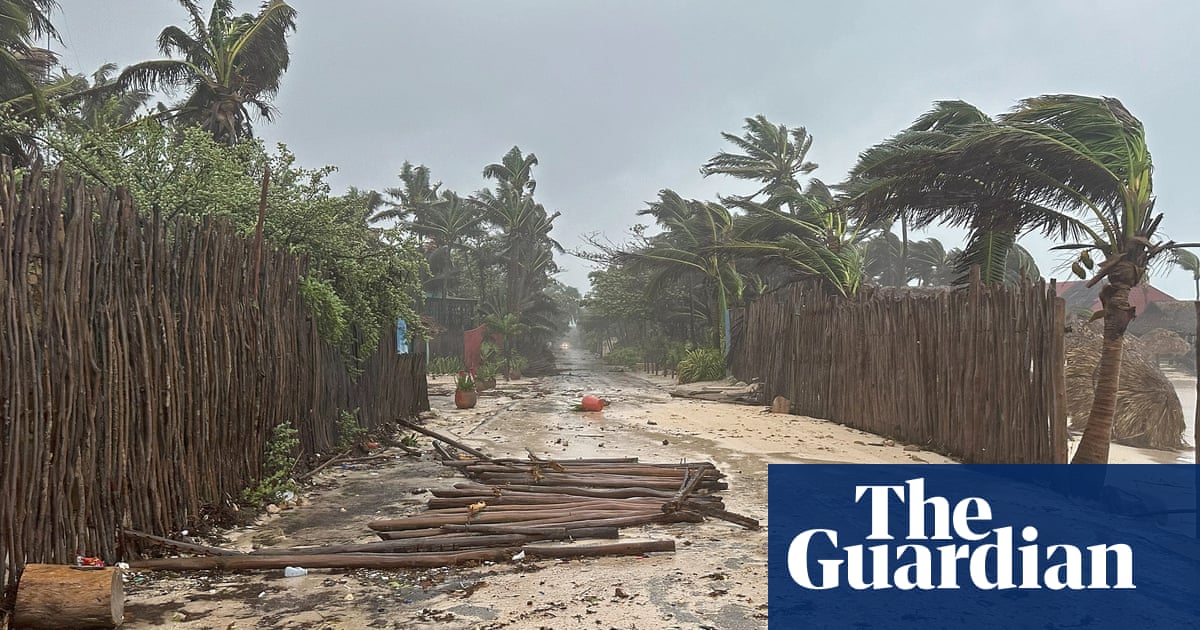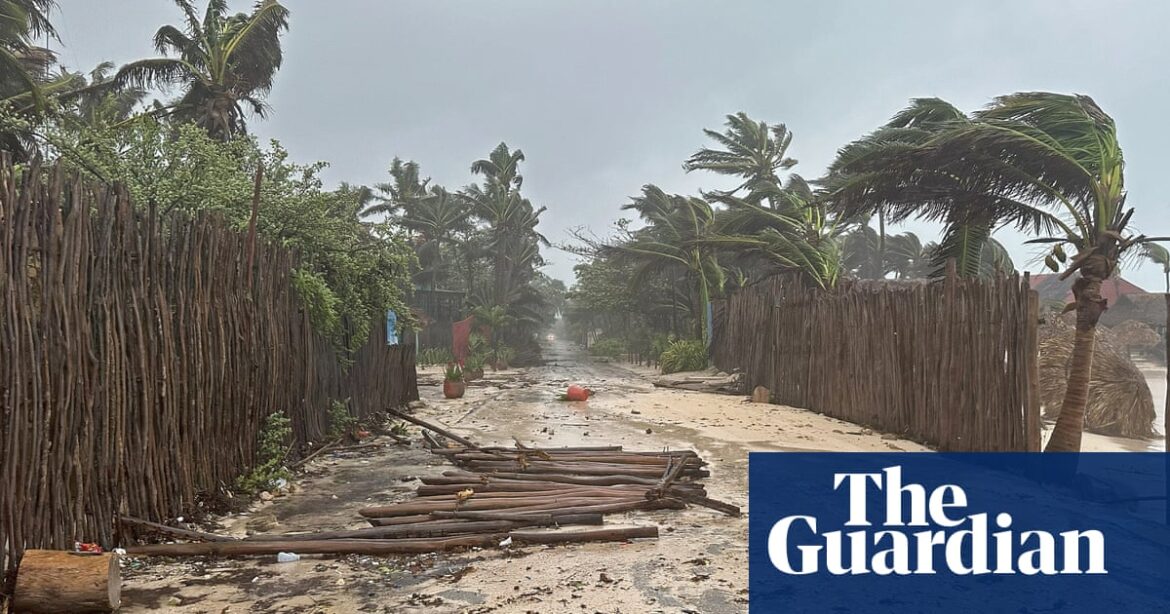
Hurricane Beryl has made landfall as a category 2 storm in Mexico’s top tourist destinations, triggering a red alert in the region following its deadly trail of destruction across several Caribbean islands.
The storm’s core shifted over the Yucatán, with winds slowing to approximately 100mph (160km/h) as it reached the north-eastern region of Tulum, famed for its white-sand beaches, lush landscapes and Mayan ruins.
The National Hurricane Center (NHC) predicted that the storm will move towards north-eastern Mexico and southern Texas towards the end of the weekend. In anticipation of that, Texas officials on Friday urged coastal residents to prepare to deal with Beryl.
Video posted on social media on Friday showed fierce winds battering Tulum’s downtown.
A hurricane warning was issued for the coast from Puerto Costa Maya to Cancún, including Cozumel.
Hurricane Beryl, the first of the 2024 Atlantic season, was at one point a category 5 storm, making it the earliest storm of that magnitude on record. This extraordinary storm season is believed by scientists to be fueled by the climate crisis.
Mexico’s civil protection agency issued a red alert, signaling a maximum hazard threat. The agency has advised residents to remain in their homes or seek refuge in storm shelters.
The Mexican president, Andrés Manuel López Obrador, echoed this advice, urging those in the storm’s path to seek shelter. He emphasized the importance of prioritising life over material possessions in a social media post.
In Quintana Roo, home to Cancún, the governor, Mara Lezama, posted a video of Tulum’s downtown showing strong winds and rain already affecting the region. Posting on X, she urged residents to remain indoors, saying: “We’re asking everyone to stay in your homes, in your shelters, do not leave.”
Schools in Quintana Roo have been closed and the Mexico’s defense ministry has opened around 120 storm shelters in the area.
Before reaching Mexico, Hurricane Beryl wreaked havoc in the Caribbean. It swept through Jamaica, Grenada, St Vincent and the Grenadines, and northern Venezuela, claiming at least 11 lives, bringing down buildings and uprooting trees.
On Friday afternoon, Mexico’s civil protection agency said that no casualties had been reported in the country.
Beryl is expected to weaken rapidly as it crosses the Yucatán peninsula, but is forecast to regain strength when it moves over the Gulf of Mexico.
Hurricane Beryl forced the evacuation of around 3,000 tourists from Isla Mujeres, an island near Cancun, the island’s tourism director, Jose Magana, said. Many residents, including fishermen, have sought shelter in anticipation of the storm’s impact.
About 100 flights were canceled at the Cancún international airport on Thursday, causing many tourists to rush to catch the last outgoing flights.
Mexico’s major oil platforms, primarily located in the southern Gulf of Mexico, are not expected to be affected or shut down, but oil projects in US waters to the north may be affected if the hurricane continues on its expected path.
Research by the ClimaMeter consortium determined that the climate crisis, caused by human activities, significantly intensified Hurricane Beryl. According to the study, the storm’s severity, along with its associated rainfall and wind speed, saw an increase of 10-30% as a direct result of the climate emergency.
Source: theguardian.com



